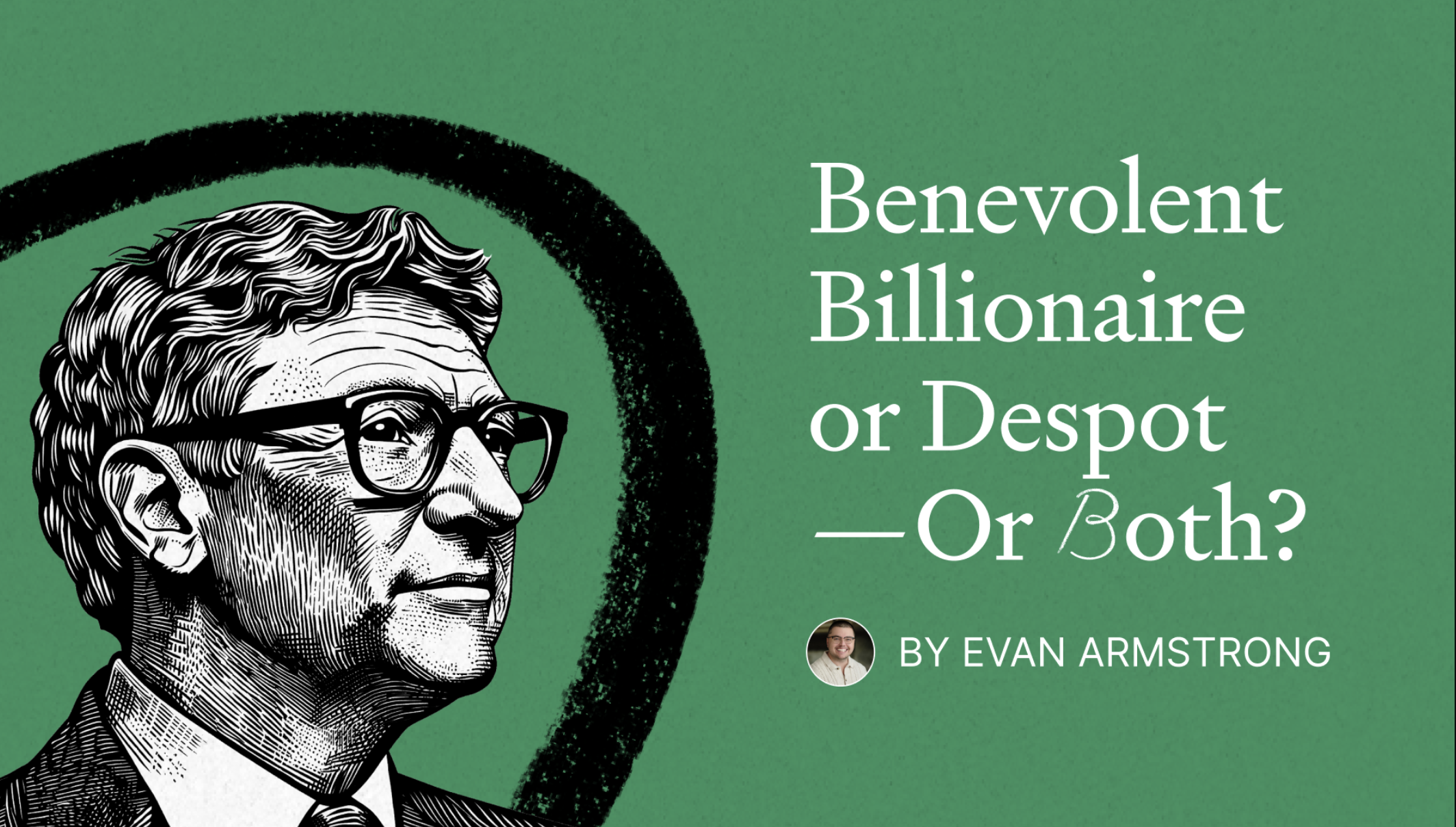Benevolent Billionaire or Despot—Or Both?

🌈 Abstract
The article discusses the legacy and impact of billionaire philanthropist Bill Gates, particularly in light of his controversial connections to convicted sex offender Jeffrey Epstein. It examines the challenges of evaluating the net impact of billionaires on society, given the scale of their influence and the complexities involved in assessing their actions and motivations.
🙋 Q&A
[01] Reckoning with Bill Gates' Legacy
1. What are the key factors that complicate the assessment of Bill Gates' legacy?
- The article discusses the contrast between Gates' philanthropic work, which has impacted millions of lives, and the controversies surrounding his personal connections to Jeffrey Epstein.
- It notes that this "math is reductive" and "almost certainly unfair," but argues that it is a worthy question to consider given the growing power and influence of billionaires in society.
2. How does the author view the challenge of evaluating the net impact of billionaires?
- The author suggests that billionaires represent a "moral singularity" where the usual ethical frameworks break down due to the scale and complexity of their influence.
- The author argues that the question may not be whether billionaires are "good or bad," but rather how to structure society to prevent any individual from wielding outsized influence over others.
[02] The Influence of Perception and PR
1. How does the author view the role of perception and public relations in shaping the public's understanding of Bill Gates?
- The author notes that Gates has a large team of public relations professionals, content creators, and style consultants who work to shape the public's perception of him and his work.
- The author suggests that this "industrial" approach to reputation management means that our understanding of Gates is at least partially crafted by his team, making it difficult to discern the truth.
2. What does the author say about the competing narratives around Gates' life and work?
- The author points out that there are multiple "layers" to Gates, including the founder, the individual, and the philanthropist, each of which has been shaped by his team's efforts.
- The author also notes the upcoming release of Gates' own memoirs, which are likely to present a more positive portrayal of his life and work, further complicating the public's understanding.
[03] The Limitations of Moral Evaluation
1. What are the key challenges the author identifies in evaluating the moral impact of billionaires like Bill Gates?
- The author suggests that the scale and complexity of billionaires' influence makes it difficult to perform "moral calculus" on their actions and consequences.
- The author argues that billionaires represent a "moral singularity" where the usual ethical frameworks break down, making clear moral judgments nearly impossible.
2. What does the author propose as an alternative approach to evaluating the impact of billionaires?
- The author suggests that instead of asking whether billionaires are "good or bad," we should focus on how to structure society to prevent any individual from wielding outsized influence over others.
- The author argues that we may need to develop new ethical tools to grapple with the rise of the billionaire class and their vast wealth and power.